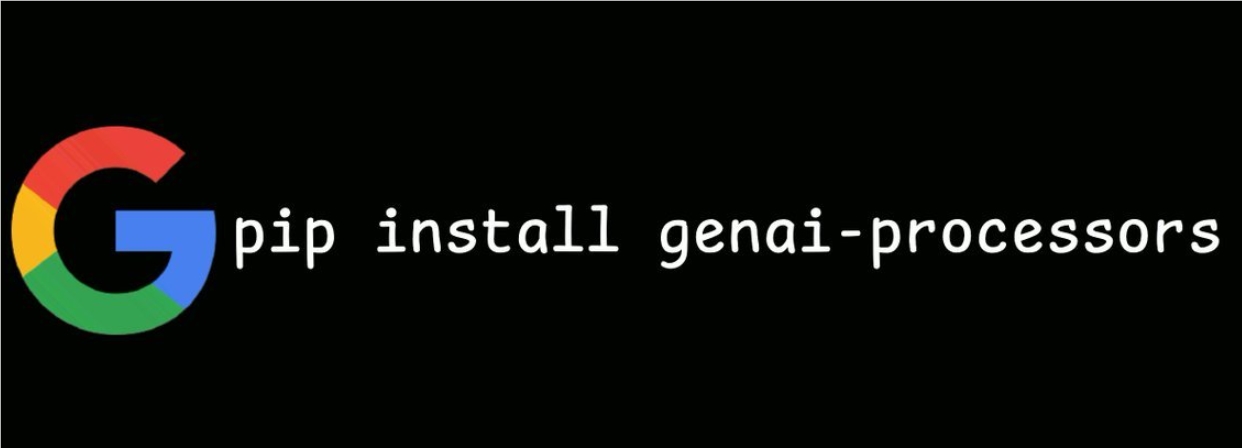Google DeepMind Open-Sources GenAI Processors for AI Workflows
Google DeepMind Open-Sources GenAI Processors for AI Workflows
Google DeepMind has announced the open-sourcing of GenAI Processors, a new Python library aimed at streamlining the development of asynchronous, composable generative AI workflows. This lightweight tool is designed to enhance the efficiency of building complex multimodal AI applications, particularly those leveraging the Gemini API.

Key Features: Modularity and Asynchronous Processing
The library revolves around a unified "Processor" interface, enabling developers to break down intricate AI workflows into modular units. These units handle everything from input preprocessing to model calls and output generation, supporting asynchronous stream processing for multimodal data like audio, text, and images. Tests by the AIbase editorial team reveal that the library leverages Python's asyncio mechanism to optimize concurrent execution, significantly reducing latency in I/O-intensive tasks. This makes it ideal for real-time applications such as voice assistants or video processing tools.
GenAI Processors includes two built-in processors: GenaiModel for session-based interactions and LiveProcessor for real-time stream processing. With just a few lines of code, developers can create AI agents that support microphone and camera inputs. For instance, combining video and audio processing allows for rapid development of real-time translation or smart assistant applications.
Technical Core: Streaming API and Concurrency Optimization
At its heart, GenAI Processors employs a streaming API, treating all inputs and outputs as asynchronous data streams of ProcessorParts. Each data unit (e.g., an audio segment or image frame) comes with metadata, ensuring data stream orderliness while minimizing "Time To First Token" through built-in concurrency optimizations. The modular design allows seamless integration of different processing units, maintaining code reusability and maintainability.
Currently, the library supports only Python, but its core directory includes basic processors, with community contributions welcomed via the contrib directory. Google DeepMind plans to expand functionality through community collaboration, potentially covering more scenarios and programming languages in the future.
Industry Impact: Accelerating Generative AI Development
The open-sourcing of GenAI Processors provides developers with a powerful tool for building high-performance Gemini applications, particularly in real-time multimodal processing. Compared to traditional frameworks, this library reduces development complexity through modularity and asynchronous processing, making it especially suited for low-latency applications like intelligent customer service, real-time translation, and multimodal interactive agents.
The library is still in its early stages, with its GitHub repository (https://github.com/google-gemini/genai-processors) open for community contributions. Developers have expressed interest in broader language support and pre-trained model integration—features Google DeepMind may introduce in future updates.
Key Points:
- Modular Design: Breaks down workflows into reusable units.
- Asynchronous Processing: Optimizes performance for real-time applications.
- Streaming API: Ensures efficient handling of multimodal data.
- Community-Driven: Open-source model encourages collaboration and expansion.
- Gemini API Optimization: Tailored for seamless integration with Google's Gemini API.




